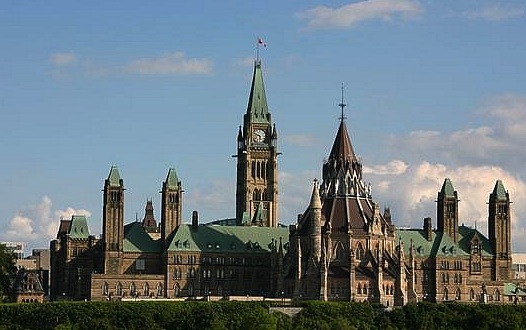 March 23, 2012 – Just as news broke of the federal government’s plans to change the age eligibility for OAS from 65 to 67, CARP went to Ottawa to voice our opposition at a pre-budget consultation hosted by Liberal Pensions critic, Judy Sgro. Our message was the same as our recently launched campaign to protect OAS for current and future seniors, “Hands off OAS.”
March 23, 2012 – Just as news broke of the federal government’s plans to change the age eligibility for OAS from 65 to 67, CARP went to Ottawa to voice our opposition at a pre-budget consultation hosted by Liberal Pensions critic, Judy Sgro. Our message was the same as our recently launched campaign to protect OAS for current and future seniors, “Hands off OAS.”
CARP seized the opportunity to show that OAS is sustainable for the long-run and that Canada measures favourably to many other countries with aging populations and fiscal constraints. In fact, Canada spends a significantly smaller portion of its GDP on public pensions than the OECD average and has a notably younger population than most other OECD nations.
Delaying OAS Hits Hardest Where it’s Needed Most
CARP told participants from a wide range of organizations and political affiliation, that despite Canada’s progress on reducing seniors’ poverty, almost 300,000 Canadians over 65 still live in poverty and many more straddle the low-income threshold and struggle with old-age financial insecurity. Between 2006 and 2009, nearly 128,000 more seniors became low income. Of that amount, an overwhelming 70% were women. For many of these women, the combination of OAS and GIS is the deciding factor in preventing poverty. Waiting an additional two years for OAS and GIS could be catastrophic for too many Canadians.
Andrew Jackson, Chief Economist at Canadian Labour Conference, echoed this concern by questioning whether “cutting back basic income security for seniors [is] the best way of dealing with an aging society, or are we just going to be dumping more of those costs on individuals who are not able to afford it?”
Glen Hodgson, Senior VP and Chief Economist of Conference Board of Canada, pointed out that Canadians have undersaved for retirement and that the OAS issue is just an opening saga to a much bigger dilemma of retirement security.
CARP recognizes that there are fiscal pressures to be addressed, but reiterated its call for pension and healthcare reform, arguing that there are other places where the government can look to reduce expenditures. If done right, pension reform could help decrease the need for OAS as people will save more for retirement. Similarly, health care reform holds the potential of saving the country billions of dollars.

